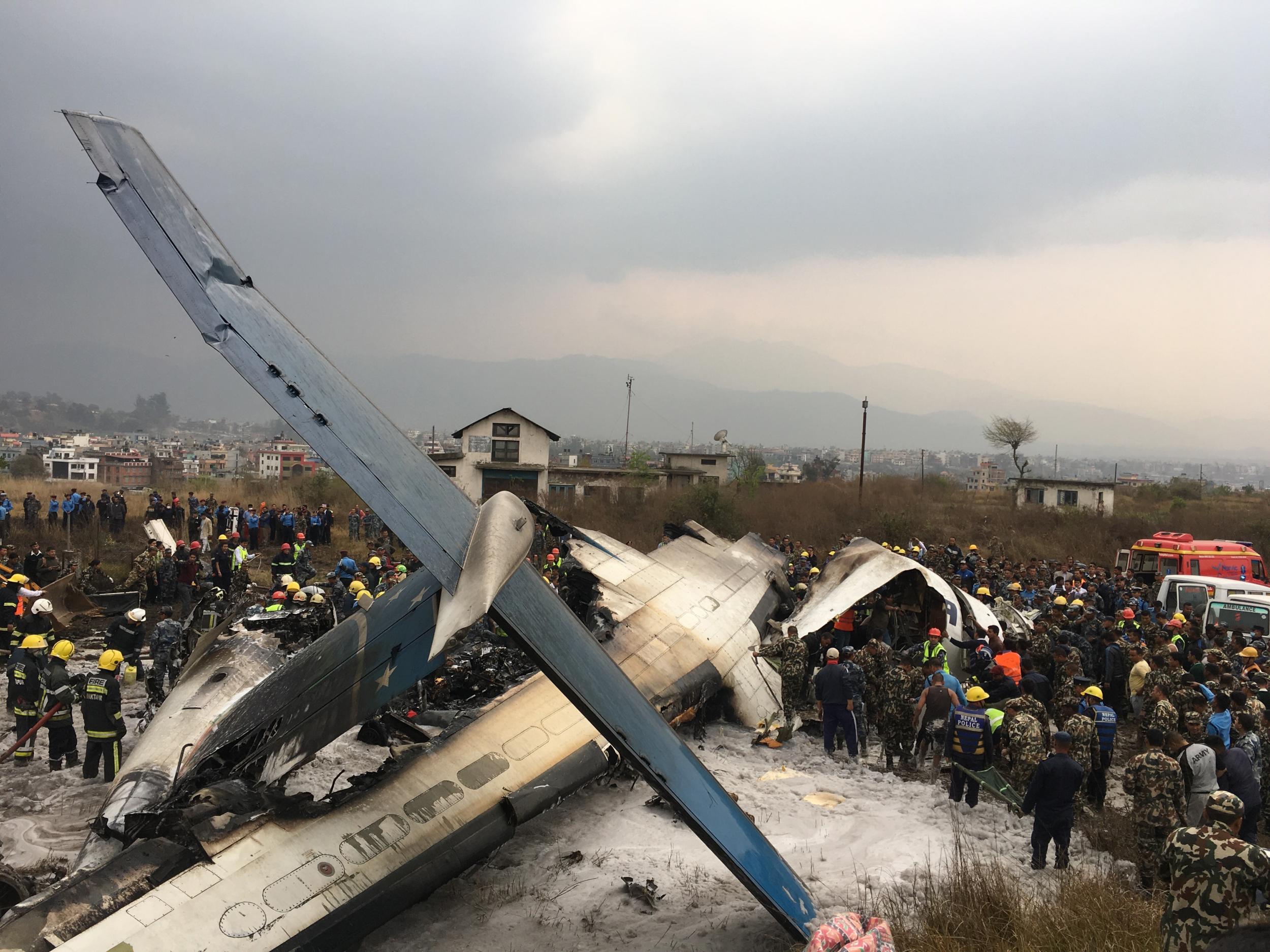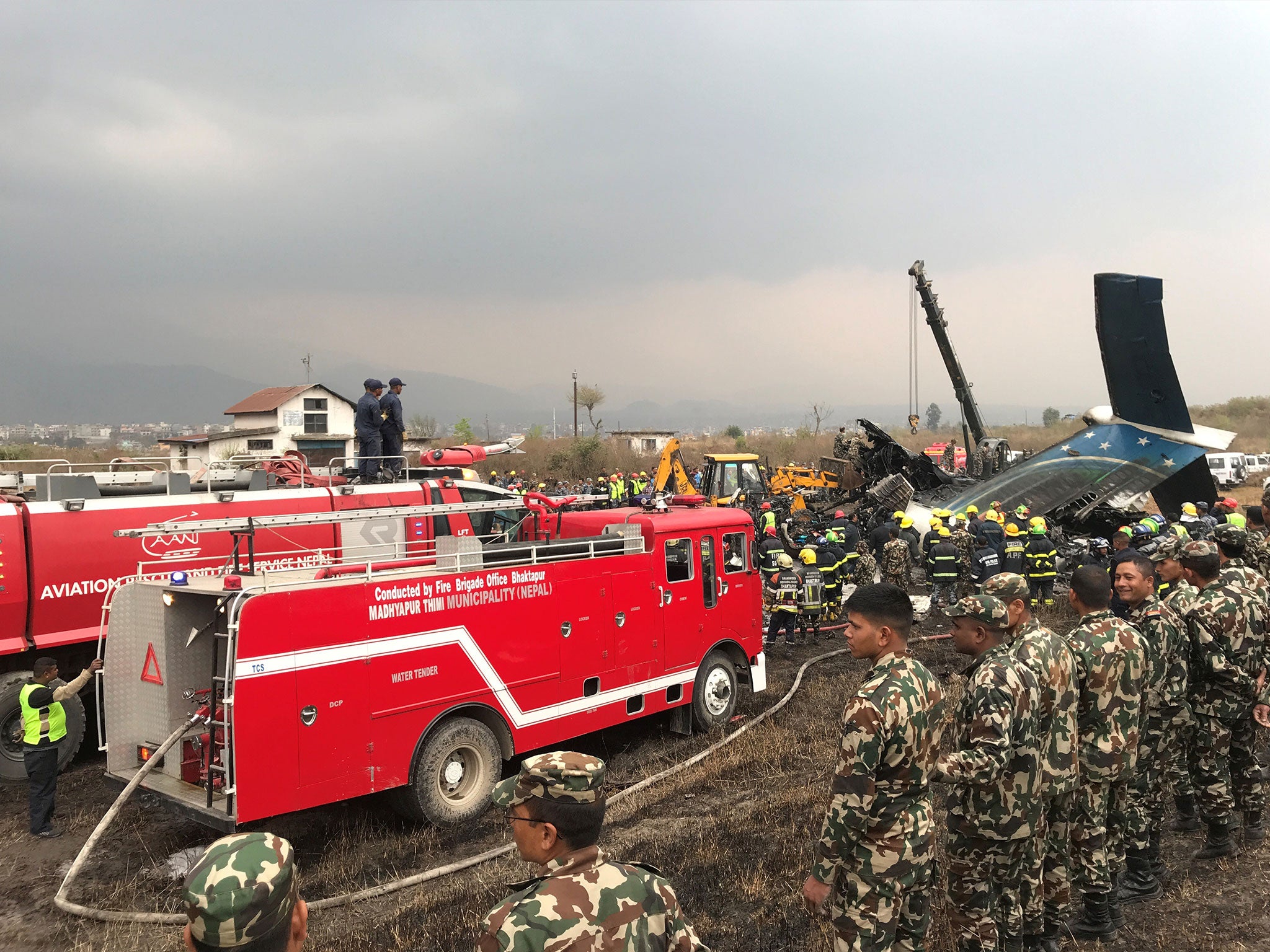Nepal plane crash caused by captain who suffered 'emotional breakdown', investigators believe
Abid Sultan was 'extremely upset and hurt' after his reputation was questioned, finds draft report

A deadly plane crash in Nepal was caused by the pilot’s “emotional breakdown” due to work-related stress, according to a draft investigation report.
Captain Abid Sultan was had been “extremely upset” and chain-smoked and wept in the cockpit during the ill-fated flight in March, according to the document.
The US-Bangla Airlines flight from Dhaka to the Nepali capital of Kathmandu crashed upon landing and caught fire, killing 51 of the 71 people on board, in the Himalayan nation’s worst aviation disaster for 26 years.
It was the ninth fatal accident in eight years for the mountain nation.
Sections of the draft report by a Nepali government-appointed panel said Mr Sultan had been “extremely upset and hurt” by a female colleague who raised questions about his reputation as an instructor in the airline.
“He was very much under stress due to this particular issue,” the report said.
“This mistrust and stress led him to continuously smoke in the cockpit and also suffer an emotional breakdown several times during the flight,” it said.
“The captain was ‘crying and sneezing’ on several occasions during the flight,” the draft said, citing recorded conversation between the cockpit and air traffic controllers.
The first officer was constantly trying to console him, it added.
The pilots failed to follow instructions from air traffic controllers to land from a southern approach and took a more difficult northern approach to the single runway. The plane was not correctly aligned with the runway before landing, the report said.
The plane skidded off the runway onto the grass around it. The captain, a former Bangladesh air force pilot, was among those killed.

A full version of the report was not available. An official of the investigation commission said the draft had been “illegally leaked” and that the final report would take some time to be published.
US-Bangla Airlines chief executive Imran Asif said in Dhaka: “The official report has not been published or released. I don’t know what evidence they are talking about.”
Surrounded by hills, Kathmandu airport is considered one of the most challenging runways to land on in the world.
In 1992 all 167 people aboard a Pakistan International Airlines plane were killed when it ploughed into a hill as it tried to land.
All of Nepal's airlines are banned from the EU because safety officials do not trust the country's aviation safety regulator.
Only one of the 17 airlines on the blacklist, Royal Nepal, has ever flown to the UK. At present it is banned, along with 16 others.
Additional reporting by Reuters
Join our commenting forum
Join thought-provoking conversations, follow other Independent readers and see their replies
Comments